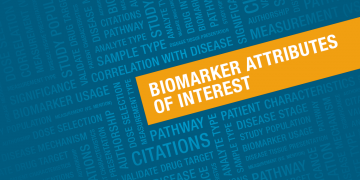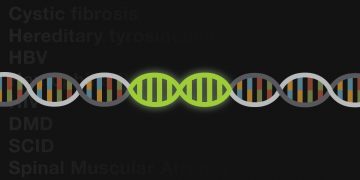
What’s New in U.S. Biosimilar-Land?
Biosimilars are gaining in popularity and estimates predict that the U.S. could save between $40–250 billion in healthcare costs over the next decade by switching from biologics to biosimilars. See how biosimilars have gained in popularity recently, the challenges the U.S. faces in developing them, and what the future holds.

Cell Sorting and Its Significance in Stem Cell Research
Stem cells possess the remarkable potential to self-renew and to differentiate into many different types of cells. Due to their unique ability to regenerate, they are being used in regenerative medicine and offer great hope for treating diseases such as diabetes and heart disease. However, since stem cells represent a rare population of cells, they are not always easy to study. See how the simplicity, efficiency, and flexibility of cell sorting is making it possible to isolate pure populations of stem cells for downstream analyses.

Immunotherapy: The Next Frontier for Cancer
Immunotherapy is not a new concept; it has, in fact, been around for more than 125 years. However, recent scientific advances have led to the emergence and rapid evolution of the field, especially immuno-oncology. Get an introduction to this exciting emerging field, learn about the different personalized therapies currently available, and see what the future of cancer immunotherapy looks like.

Speed Time to Results by Incorporating Flow Cytometry into the CRISPR‑Cas9 Gene Editing Workflow
The power to edit a gene is the power to change its function, and with it the biology of a cell. From generating novel cell lines and better animal models for the discovery and preclinical phases of therapeutic research to actually creating a therapeutic itself, CRISPR gene editing is allowing science to advance rapidly. See how enrichment and cell sorting can help generate edited cells faster and more reliably.

Understanding Biomarkers for Better Drug Discovery and Development
Biomarker intelligence comes from understanding the biomarker landscape, that is, the characteristics and features of biomarkers, and disease pathways. This understanding, in turn, helps to recognize the utility of biomarkers. In this study, we partnered with Amplion Inc., to investigate biomarker usage in 24 immunotherapy companies. We found the most popular biomarkers and learnt how they are being used by each company.

Biosimilars. Are They Ready for Primetime?
Is the hype surrounding biosimilars real or simply a hopeful view on an exceedingly expensive drug market? Read this article to find out more about biosimilars and understand the challenges facing the biosimilars industry.

Modern Improvements to Classic Technologies: Innovating Electrophoresis and Chromatography Upstream of Protein Characterization to Speed Up Research
When testing new drug therapies, it is essential to know the identity of the protein being tested. Chromatography is a commonly used technique to separate complex biological mixtures and isolate proteins of interest prior to downstream characterization. Learn more about how automating chromatography and stain-free technology are helping to save time and effort in protein purification.

What Pharma Is Doing to Triple Clinical Trial Successes
The typical success rate of a clinical trial is less than ten percent. Pharmaceutical companies are using a variety of methods to save time and reduce costs to get drugs to market faster. Biomarker screening is proving to be an effective way to improve the drug discovery and development process. See one of the ways Pharma companies can identify the most relevant biomarkers.

Key Steps to Ensure Optimized and Reproducible qPCR Experiments
Real-time PCR is a common and easy-to-adopt technology. By keeping a few simple steps in mind as you design and run your experiments you can ensure high-quality, reproducible data.

Erasing Disease: How Gene Editing is Changing Genetic Therapies
Gene augmentation and antisense therapies treat disease by providing a functional copy of faulty gene or repressing its expression. Find out how gene editing tools, like CRISPR, promise a more permanent cure.
